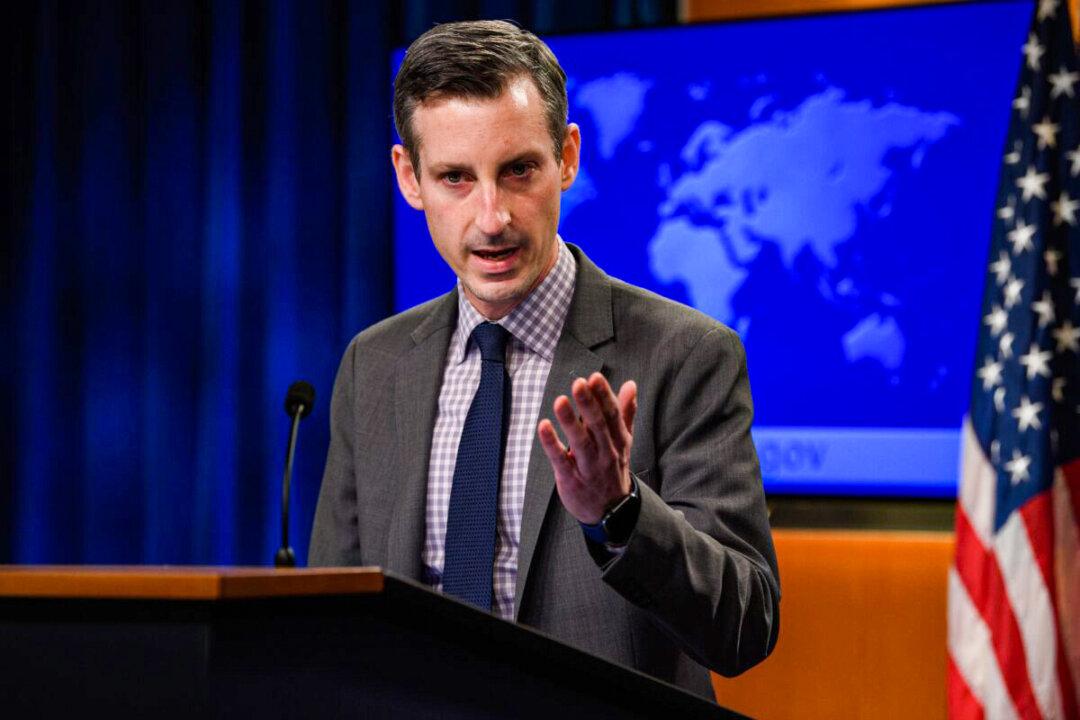The United States said Friday that it was “profoundly disappointed and troubled” by Syrian President Bashar al-Assad’s visit to the United Arab Emirates (UAE), calling it an attempt to “legitimize Assad.”
The Syrian Presidency said Friday that Assad met with Dubai ruler Sheikh Mohammed bin Rashid al-Maktoum, who is also a vice president and Prime Minister of the UAE, making his first trip to an Arab country since the Syrian war began in 2011.





